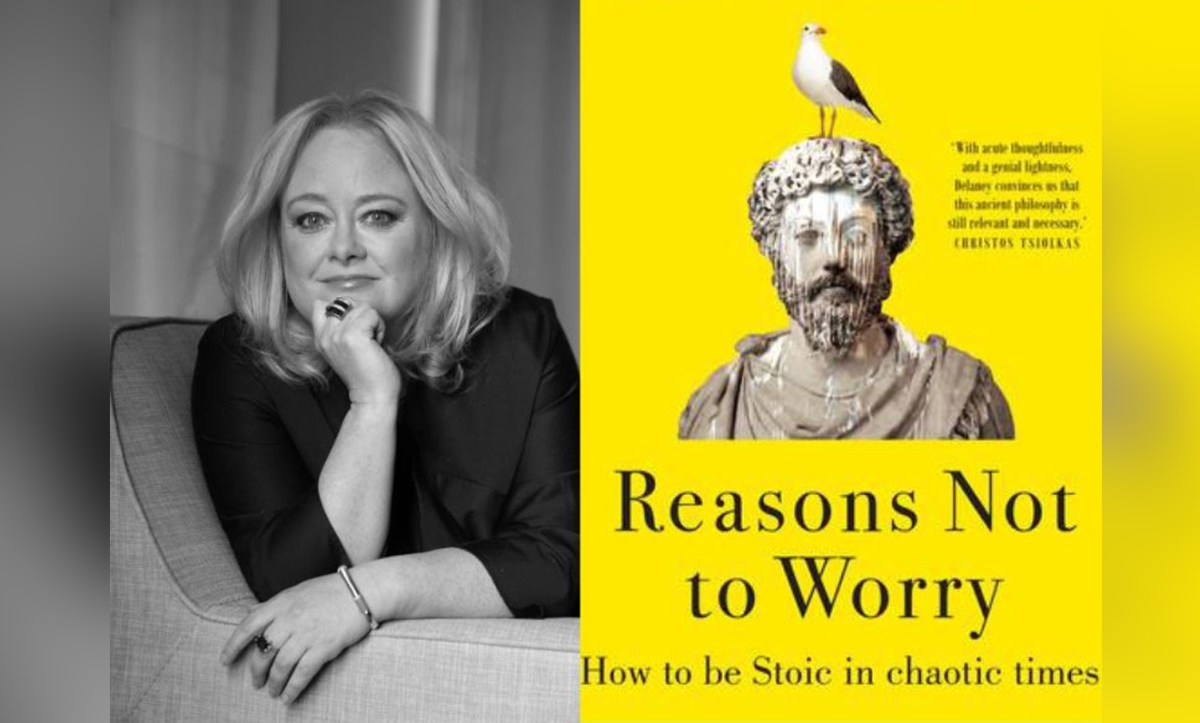Self-help books are very common – go and look through any bookstore and they’ll have their own section with big shouty fonts. The premise of Reasons not to Worry doesn’t seem all that different from the rest, providing as it does a framework to develop inner fortitude, to create ‘the ability to be calm and courageous during times of global chaos and in a chaotic personal life’.
Brigid Delaney, however, offers a contemporary interpretation of the ancient philosophy of Stoicism, particularly the works of Epictetus, Seneca and Marcus Aurelius. She may have been inspired by Alain de Botton’s book The Consolations of Philosophy (2000), that popularised the works of Socrates, Epicurus, Seneca, Montaigne, Schopenhauer and Nietzsche and reconfigured them to assist with modern universal problems.
Reasons not to Worry: How to be a Stoic in chaotic times is written in digestible, conversational tones; there’s no dense philosophical treatise to wade through as Delaney convincingly points out how relevant and evergreen the teachings of the Stoics are to our present day dramas. But first of all the actual word ‘stoic’ she reminds us, has been bastardised from its original meaning. We use it flippantly as a way to describe those who repress their emotions, but the actual Stoics were not like that. Their aim was to minimise unnecessary suffering by training the mind to accept a number of truths, one of which is to be aware of your own and others’ mortality.
A keystone of their philosophy, this truism that we are born to die, does sound a depressing concept to process but, when you think about it, time is the only true currency we have. As Delaney quotes from Marcus Aurelius: ‘Do not act as if you have 10,000 years to throw away. Death stands at your elbow.’
Unlike the chirpy bright-eyed exhortations of many self-help books that urge their readers to look on the bright side of life and go hunting for silver linings, the Stoics’ advice was the opposite: one should engage in ‘negative visualisation’ (in other words, picture the very worse that can happen, so you will be mentally prepared when it occurs).
Another Stoic instruction is to assess what can and can’t be controlled and focus attention on the former. (You can only control your character, your actions and reactions, and your treatment of others: everything else is beyond your personal ambit). The reason, too, of trying to cultivate indifference to your health, wealth and reputation is because they are ultimately outside your control.
Delaney threads her own experiences into the book and tells us how she channelled the Stoics to help her through various frustrating events in her life, including the last few years of the pandemic.
Read: Book review: No Stone without a Name, Phillipa O’Brien
Reasons not to Worry is a handy and apposite guide to herald in the new year and, even if some of the epigrammatic advice appears commonsensical, such as ‘be happy with what you have’, it’s still an excellent reminder. We all have it within ourselves to forge a way that will help us navigate upheavals and setbacks. As Marcus Aurelius posits, ‘The universe is change; our life is what our thoughts make it.’
Reasons not to Worry: How to be Stoic in chaotic times, Brigid Delaney
Publisher: Allen & Unwin
ISBN: 9781743310496
Format: Paperback
Pages: 304 pp
Publication Date: September 2022
RRP: $24.95





